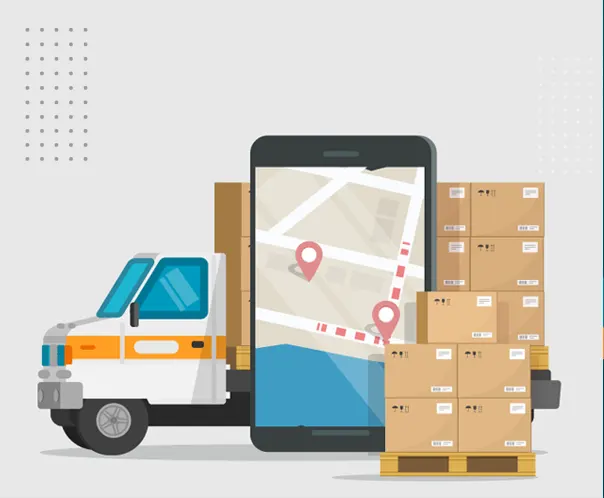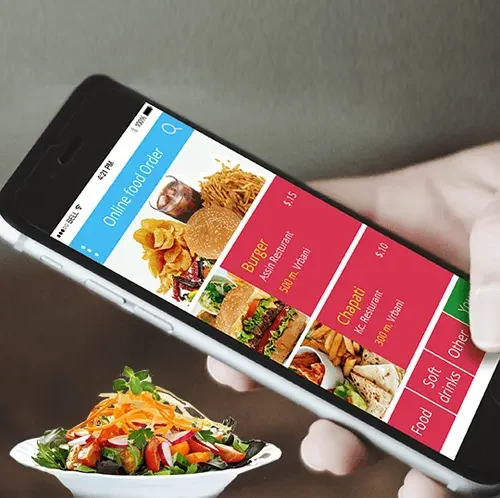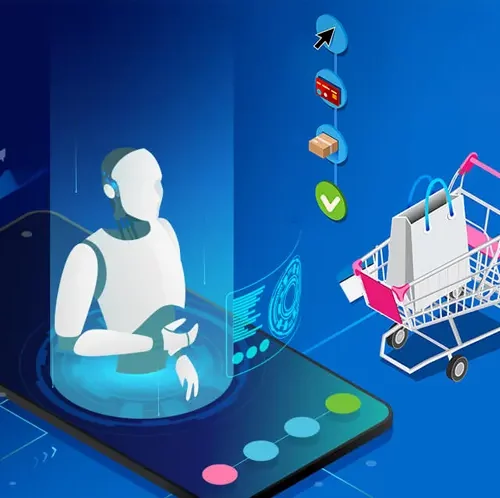Did you know the logistics industry meets many challenges? Do you believe multifactorial dynamic pathways between technology and supply chain digitalization can only shape the industry landscape?
Customer service can be optimized to address delayed delivery, cover exceptional client outlooks, and provide accurate information by streamlining smooth fleet operations that only enhance the overall customer experience.
The influences of poor customer service can be dangerous, leading to lower client loyalty, which might hamper the growth of logistics organizations. Additionally, satisfied timely delivery could encourage trust margin, it will trigger repeat order flows, and set companies in a one-way business monopoly in a competitive market.
The recent disruptions in the supply chain exposed vulnerabilities like lack of proper visibility, legacy demand management processes, excessive dependence on manual operations, and labor outrages, causing unforeseen interruptions.
Another challenging metric affects transportation expenses, influenced by fuel costs, and driver shortages stemming from inadequate route optimizations and no access point of pre-traffic estimations. These factors can significantly strain a logistics organization’s budget, requiring innovative software convergence for optimal logistic operations.
Supply chain management in logistics operations is the backbone of many businesses, which means it involves optimizing the flow from procurement to product delivery for smooth and efficient operations. Streamlining each aspect of the supply chain can lead to reduced costs, timely delivery, better control over fleet positioning access, and on-time status assessments, thus lifting logistics operations.
To address these challenges effectively, logistics firms must mobilize the ability of logistics software integration, cloud services, and use of smart Logistics Apps. By leveraging AI-integrated ecosystems into daily workflows or IoT software integrations in Logistics Apps, companies can amplify productivity, predict customer demand, manage operations efficiently, and mitigate any supply chain disruptions seamlessly.
The journey to create a logistics app has immense prospects for businesses seeking to improve workflows, minimize human errors, and deliver outstanding customer experiences. Whether it’s about reforming fleet operations, optimizing routes, or monitoring fleets in real-time, logistics app development can implement better convergence of technology and business in how companies deal with the future logistics landscape.
If you are requesting to build a logistics app to boost your business efficiency, provide seamless transportation experiences, or streamline fleet management easily, this comprehensive guide is for you. How is logistics app development being made, what features are to be had, what benefits it has, etc. are address below.
Finally, we need to solve the link between technology integration in the supply chain for better logistics operations. Let’s use the transformative influence of technology in logistics and explore the key opportunities Logistics Software development offers to your business.
What are the Benefits of Developing a Logistics App and how does it boost Logistics Operations?
Here, we analyze why creating a dedicated app for logistics is not just a luxury but a necessity in the ever-evolving logistics industry.
Track shipments in no time!
Imagine having the power to track your shipments in real-time, anywhere, anytime. That’s the kind of real-time visibility that a logistics app can provide. Fleet operations can succeed if fleet operators can identify the exact location of their goods at all times, while customers increasingly call for the easy track of their orders. A logistics app can deliver this level of transparency, ensuring all parties involved are kept in the loop and empowered with up-to-the-minute information.
Efficiency and cost savings go hand in hand in the logistics domain!
An app tailored for particular logistic operations can play a pivotal role in optimizing better business outcomes. From intelligent route planning to ensuring on-time deliveries, the app’s facilities can lead to significant energy savings and a cutback in transportation costs, yet supporting to reach quick bottom lines.
Offer Greater customer experience!
Adding an extra layer of satisfied customers is not a dream anymore in logistics operations. A logistics app can be a game-changer by offering features like order tracking, estimated delivery times, and automated notifications. This not only boosts customer satisfaction but also promotes loyalty and repeat business, which removes bottlenecks and ensures driving growth and success.
Human Error Reduction:
Error reduction is a significant benefit that comes with automation in logistics processes. Minimizing human errors and less human involvement could streamline logistics operations. Logistics apps can prevent such delivery delays due to – (i)faulty route driving, (ii)less knowledge of traffic status, and (iii)zero climate predictability, Thisb app ensures a smooth transitions and efficient supply chain management from start to finish.
Data-driven decisions:
Data is a powerful tool, and logistics apps serve as a treasure trove with valuable insights. These insights can be tackled by businesses to make data-driven decisions regarding inventory management, route optimization, and demand forecasting, leading to more informed and strategic choices.
Easy regulatory compliance control:
For regulatory compliance, the logistics industry is no stranger to stringent guidelines. An app tailored for logistics can assist in tracking and managing compliance with various industry regulations. This well-equipped technology could ensure adherence to safety and environmental standards and minimize the risk of fines and penalties.
Global operations take exceptional promise:
The global scope of logistics apps is another key advantage. With features like multi-language support and currency conversions, businesses can seamlessly transform supply chain management, navigate international logistics, and drive global scale operations more simplistically. It breaks down barriers and simplifies smoother operations across borders.
So, whether you’re a small business looking to optimize your supply chain or a large enterprise looking at global expansion, a logistics app can be the fundamental technology solutions these days if you’ve been pursuing considerable industry revenue outputs.
Different Types of Logistics Apps For Driving Innovation and Efficiency in the Supply Chain!
Effective logistics operation is a bit complex unit for business success, but the addition of logistics apps has set in an extra dimension for streamlining operations, efficient supply chain management, and boosting customer satisfaction.
Let’s shed some light on different types of logistics apps and their specific applications in the supply chain.
Fleet Management Software:
Mapping a fleet operation on your vehicles is no easy task. Fleet management apps focus on enabling businesses to manage their vehicles effectively by tracking their locations, optimizing routes, and monitoring metrics like fuel consumption, driver behavior, and maintenance schedules. These apps enable businesses to streamline fleet management, reduce fuel costs, and improve overall operational efficiency.
Last-Mile Delivery Software:
Last-mile delivery is the final leg of the distribution process that accurately benchmarks the KPIs of the product delivered from the distribution center to the customer’s doorstep. Last-mile delivery apps ensure swift and accurate deliveries by tracking the delivery vehicle and providing real-time updates to both the business and the customer. These apps provide critical information like estimated delivery times and order tracking, enhancing customer satisfaction and leading to repeat business./
Warehouse Management Software:
Streamlining warehouse operations is a crucial aspect of effective logistics management. Warehouse management apps automate inventory management, order processing, and picking, enabling businesses to keep track of stock levels and process orders accurately and efficiently.
Freight Forwarding Software:
Freight forwarding apps enable smooth goods transportation for lag-free operation in no time from one location to another by managing logistics, documentation, and customs clearance. These apps provide businesses with real-time updates on the status of their shipments, ensuring seamless communication between all parties involved.
What are the Challenges in Logistics App Development in 2024?
Developing logistics apps comes with its fair share of challenges. One of the primary concerns is ensuring data security, as logistics apps handle sensitive data like customer and shipment information. Developers must implement robust security measures to protect against data breaches and ensure the privacy and security of all stakeholders involved.
But scenarios could be different. Let’s deeply look at it first.
A Closer Look For Taking Challenges in Developing Logistics Apps for Global Operations:
Global Compliance:
- Addressing the diverse regulations and customs requirements in different countries adds complexity to logistics operations.
- Navigating Import-Export shipping regulations/laws, cross-border restrictions, and customs procedures involves thorough attention to detail.
Multiple Systems Integration:
- Ensuring seamless integration with existing systems, such as ERPs or warehouse management systems, is crucial.
- Overcoming challenges related to inconsistent formats and inadequate datasets made from human errors. So, API compatibility is necessary for easy data exchange.
Data Security and Privacy:
- Handling sensitive reports such as customer data, freight details, and financial transactions mandates robust security measures.
- Keeping with data security regulations such as GDPR is important to safeguarding data integrity and maintaining user trust.
Scalability:
- The logistics app must be able to handle increasing user traffic, data volumes, and transaction loads as it expands globally.
- Building a scalable architecture that can accommodate growth and higher demand is essential for providing a seamless user experience.
By addressing these limitations head-on, developers can create robust and resilient logistics apps that cater to the complexities of global supply chains and ensure seamless operations across borders.
Dynasty of Logistics App Development Trends 2024 & Onwards!
The dynasty of logistics needs to be reshaped in transport, store, and management. The latest trends in logistics app development are proof of the industry’s innovative spirit and commitment to streamlining operations while enhancing efficiency and sustainability.
AI & ML:
Imagine having to predict demand spikes, optimize delivery routes, pre-accessed weather conditions, and traffic situations, and fine-tune pricing strategies with remarkable boost fleet efficiency. This is made possible by the integration of Artificial Intelligence (AI) and Machine Learning (ML) technologies in logistics app development.
By taking advantage of these advanced tools, logistics companies can gain valuable insights into customer behavior, predicted or preoccupied situations in operational systems, and market trends. AI-powered chatbots and virtual assistants further enhance customer support, creating a seamless user experience that drives satisfaction and loyalty.
Blockchain for Supply Chain Transparency!
Businesses of all sizes are taking priority to more transparency and traceability in all aspects, and blockchain technology implementation has made an emerging or significant shift in logistics apps. By making an immutable ledger of transactions, blockchain ensures authenticity, prevents data corruption, and effectively promotes security over data breaches.
This not only minimizes the risks of fraud and errors but also fosters trust among stakeholders. From tracking shipments to verifying inventory levels, blockchain-driven logistics apps offer a heightened level of accountability and reliability that traditional systems struggle to match.
IoT for Real-Time Tracking!
The Internet of Things (IoT) revolutionizes logistics by providing real-time visibility into the movement of goods and assets. IoT devices such as sensors and GPS trackers collect granular data on environmental conditions, location, and performance metrics, enabling professionals to monitor and optimize operations proactively.
By taking advantage of IoT in logistics app development, businesses can enhance efficiency, ensure compliance, and mitigate risks associated with transit delays or damages. The result is a more agile and responsive supply chain that adapts to evolving demands with precision.
Sustainability Features
With sustainability at the forefront of global industries, logistics app development trends reflect a growing emphasis on eco-friendly techniques. Logistics apps are now equipped with features that optimize routes for fuel efficiency, reduce carbon emissions, and track sustainability metrics.
By empowering businesses to monitor and reduce their environmental footprint, these apps align with the rising demand for environmentally conscious logistics solutions. The integration of sustainability features signifies a commitment to responsible business practices and a greener future for the industry as a whole.
Autonomous logistics Vehicles
Frequent deliveries and autonomous vehicles have needed fast approaching, reshaping the logistics landscape with unprecedented efficiency and speed. Logistics apps now offer bulk delivery options and digital document processing entitles effortless shiting and streamlining operations. It relieves physical touchpoints.
Furthermore, the rise of autonomous vehicles, including drones and self-driving trucks, promises to revolutionize last-mile delivery and transportation logistics. By embracing these transformative technologies, logistics apps pave the way for a more seamless and interconnected supply chain ecosystem that leverages innovation for optimal performance.
Is Your Logistics App future-ready? Discussing 8 Unique Steps to Build a Logistics App Development Solution!
As we gear up for the logistics landscape 2024, we must examine the unique steps required to develop a game-changing logistics app that sets the bar high for innovation and efficiency.
This discussion-driven journey presents the key strategies to build a future-ready logistics app that meets the evolving demands and challenges of the industry.
Step 1: Defining Clear Objectives and Requirements
If you’re at the drawing board, mapping out the blueprint for your logistics app. The first step is to precisely define your objectives and specifications. Are you planning to streamline route planning, enhance real-time visibility, or boost overall supply chain efficiency? Setting crystal-clear goals will serve as your North Star, guiding the development process toward a targeted and impactful logistics solution.
Step 2: Ready to Test Advanced Technologies
In 2024, it’s all about exploiting the most advanced technology that shaping tomorrow’s world, like Artificial Intelligence, Machine Learning, and the Internet of Things. If you use AI for predictive analytics, ML for decision-making automation, and IoT for real-time tracking of shipments, these could bring lots of value to your logistics operations. By integrating these advanced tools, your logistics app will be at the forefront of innovation, ready to adapt and thrive in the dynamic logistics landscape.
Step 3: Prioritizing User-Centric Design
User experience takes center stage in the development of a successful logistics app. Put yourself in the shoes of logistics professionals, drivers, and stakeholders who will interact with the app daily. A user-centric design approach leads to creating an intuitive interface, focusing on ease of navigation, accessibility, and real-time data visualization.
Remember, a well-designed app not only enhances user adoption but also leads to operational efficiency.
Step 4: Greater Data Security and Privacy
With sensitive logistics data at risk, robust data security and privacy measures are non-negotiable. Implement encryption, secure authentication protocols, and ensure compliance with data protection regulations.
Building a secure logistics app inspires trust among users and stakeholders, and safeguarding critical information from potential threats has become a challenge these days.
Step 5: Leveraging Cloud Data Integration for Scalability
Scalability is the name of the game, and cloud integration can scale up cloud-stored data integration solutions. By integrating cloud technology, your logistics app can seamlessly handle data scalability and user demands.
Cloud-stored data integration solutions enable easy updates, backups, and accessibility, providing a scalable foundation for your app to grow alongside your growing business requirements.
Step 6: Allowing Real-Time Analytics and Reporting
Data is key, but real-time analytics and reporting take it up a notch. Set up your logistics app with feature-rich stuff for real-time insights. It allows users to make data-driven decisions, monitor KPIs, and swiftly address supply chain disruptions.
Real-time analytics pave the way for a more agile and responsive logistics operation that puts you ahead of the curve.
Step 7: Test, Iterate, Repeat
Testing is the foundation of app development, and logistics apps are no exception. Implement comprehensive testing for functionality, performance, security, and usability.
Performing an iterative development approach, soliciting feedback from users and stakeholders at every stage. Through rigorous testing and iteration, you ensure a high-quality logistics app that meets industry standards and user expectations.
Step 8: Integrating Sustainability Features
As sustainability takes the spotlight, embedding eco-friendly features into your logistics app is a smart move. Think tools for optimizing fuel consumption, reducing carbon emissions, and tracking sustainability metrics.
By infusing sustainability into your app, you not only contribute to environmental conservation but also align with market trends and customer expectations in an increasingly eco-conscious world.
By following these 8 unique steps, you can craft a logistics app that not only stands the test of time but also elevates your operations to new heights of efficiency and effectiveness.
Are you ready to go as fast as possible with your logistics app in 2024? Let’s dive in and build the future of logistics business together!
Streamlining Logistics Operations with Maven Technology’s Application Development service:
Building efficient logistics systems is no easy victory, but with the right tools and expertise, it’s a challenge we’re ready to tackle head-on.
Our team of seasoned app developers are masters at crafting ROI-driven logistics software that optimizes workflows, enhances visibility, and drives profitability.
As a leading mobile app development agency, we’ve honed our skills to deliver sustainable and post-delivery service commitment that seamlessly integrates with your existing infrastructure and entitles your team to make data-driven decisions.




